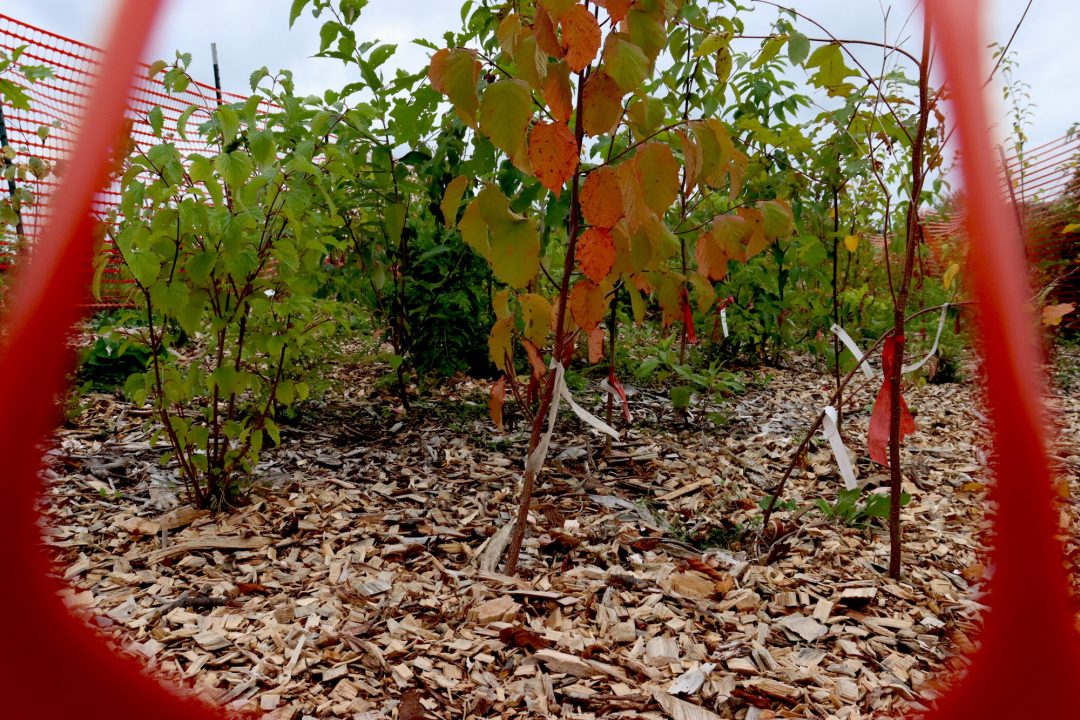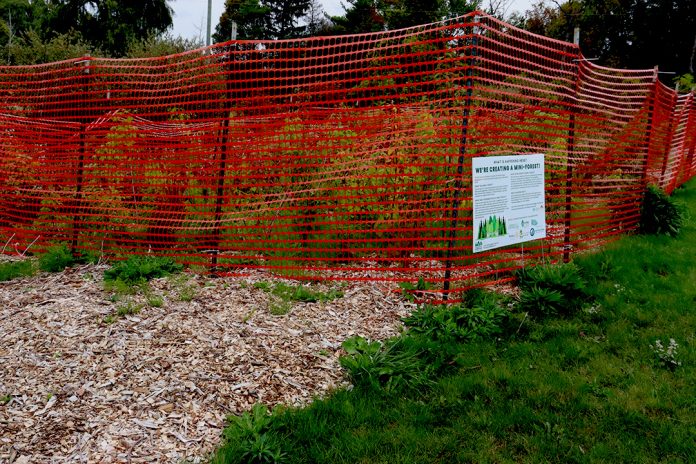Durham residents are fighting climate change by planting little forests that are nurturing nature and communities.
Little forests or mini-forests are comprised of diverse native plants packed closely together at a designated site.
The soil is prepared with layers of cardboard, compost and mulch. After three or four months, the plants are put in at different levels and depths to replicate a natural forest.
This method has been coined the Miyawaki Method, after the Japanese botanist Akira Miyawaki who designed the first mini-forest in an industrial area to fight pollution.
This method has resulted in faster growth as the closeness allows the plants to communicate with each other.
Since the species are native to Canada, they have evolved to grow with each other and interact effectively through their root networks.
From the mingling roots, the plants can sense each other’s growth and compete for sunlight, creating an urgency to shoot upwards.
Two mini-forests are underway in Uxbridge. Michael Bahn from the Rotary Club of Uxbridge led the project and quickly saw the importance of nature-based initiatives in the community.
“We’re in a time when climate change is really taking effect, and we’re starting to see the impacts of it with more severe storms and more frequent storms, floods and this summer was extremely hot and dry,” said Bahn.
Inviting people to be active in a project that affects nature ultimately creates a feedback loop to the community, he said.

The increased biodiversity improves air quality and temperatures as plants absorb carbon dioxide and provide cooling in the urban areas they are typically planted in. The variety also invites more wildlife to nurture the eco-system.
Receiving these benefits through mini-forests also secures longevity, as the Miyawaki method has resulted in longer life than traditional plants, according to studies.
“Despite the heat and drought of the summer and the fact that we didn’t even water this mini-forest last year, to see the amount of growth in that mini-forest it’s incredible,” Bahn said of the first little forest in Uxbridge.
He said out of the 600 plants and shrubs, only six died despite the intense weather.
The first little forest was sown in the Fields of Uxbridge in 2024 through a collaboration of the Rotary Club of Uxbridge, the Township of Uxbridge and Little Forests Durham. It attracted more than 80 volunteers.
Co-founder of Little Forests Durham Leah Kuhne witnessed families, youth sports teams and individuals coming together and getting involved with the cause.
Many were new to the concept of mini-forests and were fascinated by the method.
“For some volunteers, we’ve had them come up to us and say they’re so excited because it is the first time they’ve ever planted a tree and they’re excited to see that tree and that mini-forest grow over the years,” said Kuhne.
Although small forests can be achieved individually or in small groups, the sessions in Durham have led to large, long-lasting results in a short span of time, according to Kuhne.
“They can’t get over the fact that in just one morning, with the number of volunteers there to help, a mini-forest of six hundred trees and shrubs can be planted and established,” she said.
Three pocket forests (smaller mini-forests) will be planted in King Street Parkette in Uxbridge. Each one will contain 200 trees and shrubs.
Before that, Little Forests Durham and Trees for Life will be planting in the Heber Down Conservation Area in Whitby on Oct. 18.




